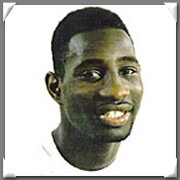 I was sentenced to death when I was 16 years old for a murder I didn’t commit.
I was sentenced to death when I was 16 years old for a murder I didn’t commit.
I was on death row for five years, spending 23 hours a day in my cell.
At 16, you don’t think about fighting for your life, especially for a crime you didn’t commit.
I thought about how I would never get a chance to graduate high school.
I contemplated suicide a few times.
I prayed a lot.
I cried a lot.
And I studied a lot.
I always had a desire for education.
My lawyers sent me English, math and science books.
I received my GED, and then started college correspondence courses, all at my lawyer’s expense.
Once you accept that you are going to die, you learn to find the little things that you can enjoy in each moment.
For me, it was education.
I started helping other inmates with their cases.
I never judged people or their situations. I just wanted to help people because someone helped me.
Some guys in prison would tell me,
“Man, you’re wasting your time. That dude doesn’t appreciate what you’re doing for him.”
But i was like,
“It’s not whether he appreciates it. It’s about me. I feel good helping him.”
People helping me steered my path.
Had people not helped me, I’d probably be executed or still on death row.
After my release, I worked at the Southern Center for Human Rights as a program organizer for the center’s Fairness for Prisoners’ Families program.
I want to be a trial attorney.
I do volunteer service too, at a place that provides food and clothes for homeless people.
I help feed them, and sometimes I go to Sunday night service and experience fellowship with them.
Being on death row makes you face the fact that, when we die, we all want to know that we’ve made some sort of contribution to society, however small it may be.
And your small bit of help may be large to someone else.
What’s small to us might make a world of difference to someone else.
I wouldn’t be here today if people didn’t help me. I’m in debt not only to those people but to everyone who does that type of work.
In 1995, at the age of 16, Shareef Cousin was sentenced to death in Louisiana for a murder he didn’t commit. Five years later, the Louisiana Supreme Court overturned his conviction because of improperly withheld evidence. Since his release, Cousin has worked with prisoner’s families at the Southern center for Human Rights in Atlanta.
This piece was originally published in and republished here with the author’s permission.


